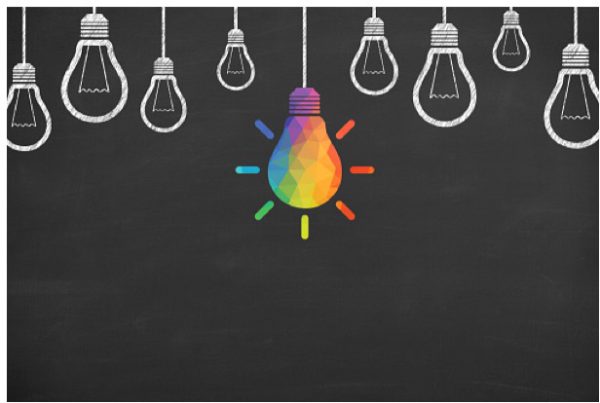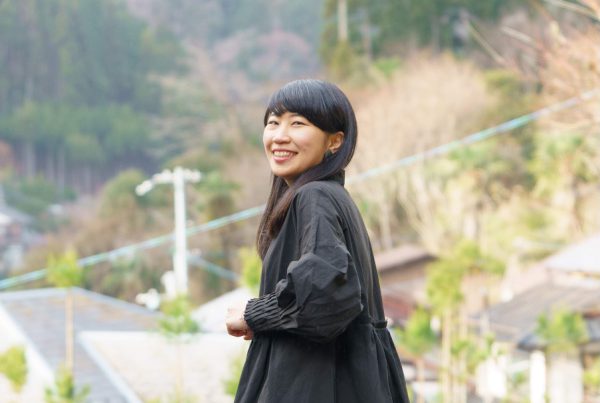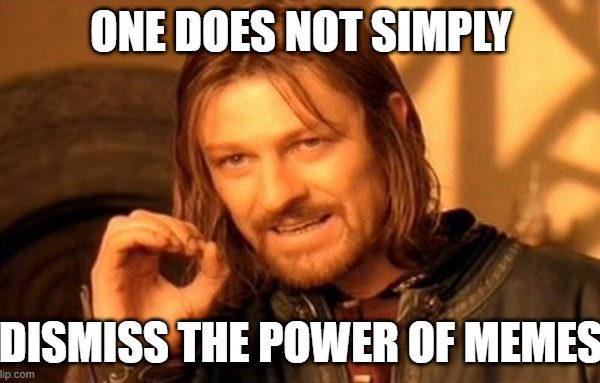Communication skills have always been a significant factor for the global community. Today, it is still becoming essential in a multicultural workplace, a diverse business environment, and numerous cultures. Of course, the digital economy opens new opportunities, but it also raises new concerns about how people adapt, communicate, and collaborate across cultures and borders.
The Nagaoka Review Team interviewed Tomonobu Haga, Executive Manager of the Nagaoka International Affairs Center “Chikyû Hiroba” on how to succeed in diverse cultural markets and enhance communication across-cultures.
NR- Nagaoka Review/TH- Tomonobu Haga
NR: Good afternoon, Mr. Haga, and thank you very much for making time to have a meeting with the Nagaoka Review team
TH: Good afternoon, and welcome back to Chikyû Hiroba!
NR: To get started, would you tell us a little bit about yourself. Who is Mr. Haga?
TH: This is a very interesting question. My name is Tomonobu Haga. I was born in 1950 in Nagaoka, as I like to say, in a country of snow and low temperatures (in the wintertime, the weather is around 0.3-1 °C). After graduating from Tokyo University, I worked for the Japanese government on many national and international projects, especially in Asia and the Middle East. In 1980, I worked for the medical-aid project for refugees in Cambodia (currently called Japan Disaster Relief Team) as the principal coordinator and ran a hospital on the country border. During the Sumatra and Chuetsu Earthquake in 2004 and the Sichuan quake in 2008, I was involved in the refugee aid for the affected victims. After returning to Japan, based in Nagaoka, I continue working to develop the community and cultivate the global human resources to make a multicultural society and introduce the regional power by the collaboration to all over the world.


Mr. Haga, during his advising visit in Bhutan
“Visiting 66 countries worldwide and speaking fluently six languages (Hebrew, Arab, Thai, Khmer, English, and Japanese), Mr. Haga is a Nagaoka city board of education member. The head of Machinaka Campus Nagaoka. Representative director of the Nonprofit Organization Citizen Collaboration Network. Representative director of the Nagaoka / Young / Job organization.”
NR: What makes Japanese culture unique?
TH: It isn’t easy to choose from. Living for several years in different cultural background and interacting with people from diverse cultures, I can say that Japan is a unique country and that not many places in the world can be compared with it. The culture, history, religion, food, people, and the place itself are things that you can’t find anywhere else. Maybe, one of the amazing things that makes Japan such a unique country is harmony. Harmony translated into Japanese is wa (wa-h) 和, it is meant to feel quiet there, in untold depths of your being, your soul. You might have heard this many times before, but in Japanese culture, it is important to be in harmony with yourself, the people around you, and nature (Shinto: Harmony with nature)
NR: What does multiculturalism mean to you?
TH: The difference is power. A strong society is represented by its culture. But the question is, how can we implement multiculturalism in a culture as formal as Japan, right? The Japanese do not like the difference of any kind, but to become culturally intelligent, we must accept diversity and the fact that each person is unique in its own way. Diversity and inclusion do not mean giving up one’s own cultural values but sharing common values in a multicultural and tolerant society.
NR: What kind of problem were you facing in society?
TH: I could say that Nagaoka is a multicultural society in continuous development. Of course, today, we can see more and more foreigners on the city streets and the university campus, but they are here temporarily. The city’s main problem is the migration of the young generation; they choose the big cities. And with that, the cultural spirit is lost. Young people are the city’s vibrant source; they can contribute to economic and cultural development, destroy cultural barriers, and transform society into a truly multicultural environment.
Cross-cultural communication
NR: Is communication, especially cross-cultural communication, important today?
TH: Absolutely. Moreover, it’s critical for today’s multicultural and globalized society. Monoculture is boring. As long as each of us understands the importance of cultural differences and the fact that culture is important to each of us, communication remains an important factor. Harmony is important, but it does not mean the harmony of one’s own culture. It is much more important than the harmony between cultures.

Mr. Haga (left) at Chikyu Lab Symposium in 2009, talking about his international volunteer work for over 30 years.
Photo take from calvin-myjourney.blogspot.com/
NR: Communication between cultures is primordial, but why is it more complicated today?
TH: First of all, due to the language. Europe is a continent where countries, cultures, and traditions intersect from a geographical and cultural perspective, and language plays a defining role. To look back, Japan was an isolated group of people for hundreds of years. There was not much exposure to the outside influences, and cultural imprinting is begun at a very early age. Secondly, all international communication is influenced by cultural differences. High-context cultures like Japan leave much of the message unspecified, understood through context, nonverbal cues, and between-the-lines interpretation of what is actually said. By contrast, low-context cultures like your European country expect explicit and specific messages.
“Communication is the most important in today’s society. It is the least effort we can make to break down cultural barriers.”
NR: Please tell us a little bit about how you come to work in multicultural community development?
TH: The interest in culture, diversity, inclusion comes from my personality. As a student, I discovered the pleasure of traveling and interacting with different people. One of my favorite hobbies is taking my camera and crossing the desert with different people. Working in different contexts and international organizations such as the Red Cross and the UN on refugee issues, I understood how beautiful diversity is. The international experience cannot be compared to anything. Each of us has something to share from our own culture and learn many other things from interacting with various people and cultures.



Afghanistan. JICA -Educational development project. Photos from Tomonobu Haga’s personal archive
NR: Why Chikyû Hiroba is an essential concept for enhancing multiculturality in Nagaoka, especially the reasons you initially become involved in this work?
TH: Because we need a place like this, Nagaoka needs it. My international activity and my Japanese and international friends who do many volunteer activities have inspired me to create a place where Japanese culture could reach some people worldwide. This place made the locals accept other cultures. Interacting every day with different people, they feel more open, flexible, and interested in another culture and language.
“In collaboration with the academic and socio-cultural environment, local and national authorities, we developed and implemented six socio-cultural projects in the Nagaoka community. One of these projects is “Machinaka Campus Nagaoka.” this project started 10 years ago, and until today is a place for cultural, social, academic, and business events.”
Envisioning the new society
NR: Mr. Haga, in your neighborhood, not everyone shares the same feelings, do you? Are there any difficulties because of that?
TH: True. For many Japanese people, this can mean society’s disability. Living three years in Australia, where there are plenty of support systems for multilingual matters, I realized how important it is for our society. The difference is quite effective—that is a multicultural policy. This stimulating policy invigorates society, leading to innovation. People, regardless of their cultural backgrounds and origins, feel never discriminated against and marginalized.


Australia. Photos from Mr. Tomonobu Haga’s archive
NR: How do you see others on lack of mutual understanding?
TH: The main cause of misunderstandings is ignorance. Different countries or cultures have different lifestyle practices due to their levels of cultural development. People lacking cross-cultural experience or cultural sensitivity may either over-emphasize or underestimate culture’s influence and communication skills when working or living in different cultural communities.
NR: How do you overcome communication challenges across-culture?
TH: Every person feels safe in an inclusive and cooperative society. The first step toward effective cross-cultural communication is to recognize differences and respect these differences. When we notice a different communication style, it’s essential to learn to embrace the difference and actively listen to the other person’s perspective. Also, it is important to learn how to reconcile cultural differences. Understanding and being empathetic towards the other culture help us reconcile the differences and learn how to use them better in our daily life
NR: What are everyone’s goals going forward?
TH: The vision of international society. Dynamics is important, and it stimulates us to develop continuously. Not only from an economic or social point of view but also culturally. Differences in values stimulate us to develop and interact with people from different cultural backgrounds.


Jordan. Photos from Mr. Haga’s archive
NR: How do you see Nagaoka in 10 years?
TH: I would like to see its dynamics. Nagaoka has a huge development capacity, and I would like to see the young generation involved in many cultural and economic projects. I would like to hear many more foreign languages in the city streets. I would like to see many more foreigners who speak the Japanese language. I think Nagaoka will become a truly multicultural city because it has huge potential.
NR: Mr. Haga, you are an example of this society. Do you have a message for today’s young generation?
TH: I deeply believe that we need a new diversity and the young generation has the power to create a better world than the one we live in. Creating such a world requires not only critical and new thinking but also courage. So, have the courage to be fearless and to take risks.
For his community development implication, Tomonobu Haga is the holder of numerous awards such as a Letter of Appreciation from the Minister of Foreign Affairs, JICA President Award (Ogata Sadako Award), Minister of Internal Affairs and Communications Award on the Regional Development, Mayor of Nagaoka Award, and so on.


Images via tamionet.com










